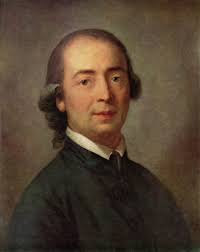20th Conference of the IHS – Toronto, 4.-7. September 2025
| Thursday 4 September |
|
|
| 13.30h |
Welcoming remarks |
|
| 13.45h |
John Noyes (University of Toronto): Introduction: What is Geography and Why does it Matter to Herder? |
|
| 14.00h |
Opening Presentation |
|
| |
Nigel DeSouza (University of Ottawa): Environment/Milieu/Territory: Aristotle, Herder, Merleau-Ponty |
|
| 14.45h |
Coffee Break |
|
| |
|
|
| |
Section 1: Geography’s Field of Knowledge |
|
| 15.00h |
Sarah Goeth (Aachen University): „Wo ist das veste Land, auf dem ich so veste stand?“ – Herders Neuvermessung des Wissens |
|
| 15.45h |
Matteo Garau (University of Turin): „Auf einem ebenen Boden“. Jenseits der Dichotomie zwischen Natur und Kultur. Zur Bedeutung der Geographie in Herders Ideen zur Philosophie der Geschichte der Menschheit |
|
| |
|
|
| 19.30h |
Mitgliederversammlung der IHS / Business Meeting of the IHS |
|
| |
|
|
Friday 5 September 2025 |
|
|
| |
Section 2: Geography, Epistemology, Narrative I |
|
| 9.15h |
Rainer Godel (Deutsche Akademie für Sprache und Dichtung): Perspektive und Bewegung in der Geographie |
|
| 10.00h |
Katherine Arens (University of Texas, Austin): Salvation Geography in Herder’s Ideas for the Philosophy of the History of Mankind |
|
| 10.45h |
Coffee Break |
|
| |
|
|
| |
Section 3: Geography, Epistemology, Narrative II |
|
| 11.15h |
Johannes Schmidt (Clemson University): Herder’s “Spatio-Poetics” |
|
| 12.00h |
Catherine Girardin (Paris Nanterre): Space in Herder’s Theatre |
|
| |
|
|
| 12.45h |
Lunch at the Gallery Grill |
|
| 14.15h |
Tour of the Thomas Fisher Rare Book Library, University of Toronto |
|
| |
|
|
| |
Section 4: Europe and Asia |
|
| 16.00h |
David Takamura (Dickinson College): The Orientalism of Provenance |
|
| 16.45h |
Daniel Purdy (Penn State University): Nomads in Prussia: The Arrival of Central Asian Geography |
|
| 17.30h |
Sonia Sikka (University of Ottawa): "A foreign Asiatic nation": Revisiting the place of the Jews in Herder's thought |
|
| |
|
|
| 18.30h |
Reception, Romero Room, Loretto College, 70 St. Mary St, Toronto |
|
| |
|
|
Saturday 6 September |
|
|
| 9.00h |
Excursion to Niagara Falls, Lunch included (Returning about 16:00h) |
|
| 18.00h |
“Die Gegenwart ist schwanger von der Zukunft.” Open Discussion in Commemoration of 40 years International Herder Society |
|
| |
|
|
Sunday 7 September |
|
|
| |
Section 5: A New Political Geography |
|
| 9.00h |
Marcus Bullock (University of Wisconsin-Milwaukee): A Messianism of Place, a Demonism of Place |
|
| 9.45h |
Carl Niekerk (University of Illinois, Urbana-Champaign): Herder’s Theory of Climate and the History of Europe |
|
| 10.30h |
Coffee Break |
|
| |
|
|
| |
Section 6: The Geographical Imagination |
|
| 10.45h |
Horst Lange (Emeritus Professor): Inwieweit bezeichnet Herders Ausdruck “nordisch“ eine erfundene Identität? |
|
| 11.30h |
John Noyes (University of Toronto): Herder’s Imaginative Geography |
|
| |
|
|
| |
For those who would like to listen in remotely, please open the Zoom link: |
|
| |
https://utoronto.zoom.us/8685230583 |
|
| |
Meeting ID: 868 5230 5383 |
|
| |
Passcode: 754696 |
|
| |
|
|
| |
|
|
| |
|
|
| zum Seitenanfang |
|
|
